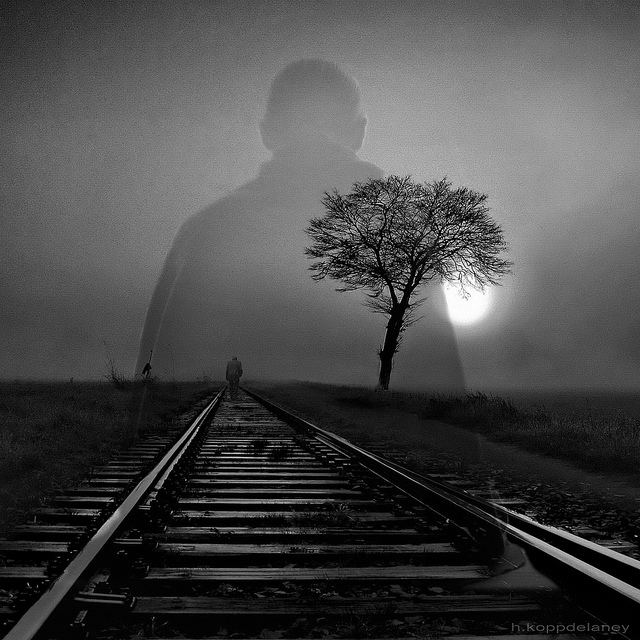According to many ancient traditions, we as humans suffer due to our desire and our ignorance.
I believe that there is a lot of truth and common sense to this that each of us can easily observe in our own experience.
The problem is that too many people for far too long have obscured these simple ideas through flowery language, hierarchical institutions, salvational thinking, self hatred, “secret” teachings, and so on.
So for the sake of cutting through the bullsh*t and actually having some clarity, let’s explore the nature of desire and ignorance and how we can observe them in our experience in the here and now. I think by the end it’ll be fairly clear that they’re often two sides of the same coin.
Desire:
Simply understood as the “do to get” approach to life. This is the basic orientation for modern culture drilled into us ubiquitously from day one.
Problems with this approach:
- Ignores the inherent wholeness of the human being.
- Ignores the inherent wisdom of life.
- Disrespects the nature of the individual.
- Easily end up living someone else’s life.
- Enforces the mind over body approach, i.e., mental is better than physical and spiritual is better than physical.
- Wastes vasts amount of time and life force.
- Creates emotional disturbance and negative cycles.
Fundamentally this approach is based on ignorance in that functionally it’s about ignoring the true nature of self, ownership, and space-time.
False ideas about self:
We think there’s a fixed, permanent, independent, separate self
Closer to reality:
Self exists in relation and dependence upon the totality of reality. No separation, only interdependence. Self is always in flux, movement, and transformation, thus no fixed self can exist.
False idea about ownership:
We think we can gain things and keep things in the external world. The more we have, the more successful we are. We think these things have inherent meaning and that we actually own them.
Closer to reality:
Everything in the physical world is in constant flux and ebb and flow. Growth and decay are dynamic processes at play always. Thus everything that is born, will die. That which is created will eventually be destroyed. Thus, there is only impermanence and “external” objects are by nature, empty.
The only meaning and fullness they have is that which our minds assign to them. It means really whatever we say and agree that it means. In and of itself, there is no meaning.
We are born naked, with nothing; the physical body will eventually return to the earth. What of real ownership then?
We spend much of our energy and time acquiring things that we cannot really keep. We stress and work for them but do they stress and work for us? Who really owns whom?
False idea about space-time:
We believe time really exists and that past, present, and future are real tangible things. We think the physical world is solid and reliable.
Closer to reality:
All things in the physical world are in constant flux, thus are they are not solid. The present moment is the only real place and time. All things arise and are contained in the present moment. Imagination and visualization both take place in the here and now. Things likely may not be different in the future as the future is only another present moment, thus it all starts here and now.
In closing:
The physical world is important and it can be fun and rewarding, yet It can also be enslaving and draining. The fulcrum is how we relate to this world and what is our strategy—in harmony or out of harmony?
It’s easy to attempt to deny things and desire (lust) after non-desire. Yet that is futile given that the desire to be rid of desires, is in itself, a desire. It is the problem/the cause, trying to get rid of itself. From this perspective we can see that this is a funny approach to take.
People want a simple black and white answer but this is again the cause trying to cure itself. It is the square peg in the round hole, destined to be futile while constantly ignoring reality. As such, it’s apparent that humans have been conditioned to be addicted to power, control, force and adrenaline induced action.
From there, dose tolerance kicks in and that fundamental stress level and psycho-spiritual approach becomes the “norm” and much of life is lived to maintain and increase the threshold of stimulation and sensation. Hence, the inability to relax, be still, be calm, do nothing, and let things take their course. Hence the urgency, tension, anxiety, and desire to control that is ubiquitous throughout the modern world.
Relephant:
My 10 Favorite Quotes from Alan Watts.
~
Author: Brandon Gilbert
Editor: Travis May
Photo: Flickr/Hartwig HKD











Read 1 comment and reply